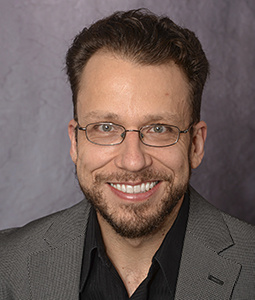Department of Sociology
Faculty and Staff Directory
Matthew Brashears
| Title: | Professor & Chair |
| Department: | Sociology McCausland College of Arts and Sciences |
| Email: | BRASHEAM@mailbox.sc.edu |
| Phone: | 803-777-6988 |
| Resources: | Curriculum Vitae [pdf] ResearchGate Page International Network for Social Network Analysis USC Institute for Mind and Brain |

Bio
Matthew E. Brashears is Department Chair and Professor of Sociology at the University of South Carolina. He completed undergraduate degrees in Psychology and Sociology at Emory University (2000) before earning an MA (2003) and a Ph.D. (2008) from the University of Arizona. He served as an Assistant Professor of Sociology at Cornell University (2008-2015) before taking up a post as Associate Professor of Sociology at USC.
His work has appeared, or is forthcoming, in Nature Scientific Reports, the American Sociological Review, the American Journal of Sociology, the Annual Review of Sociology, Social Forces, Social Networks, Network Science, Advances in Group Processes and PLOS ONE, among others. He has received grants from the National Science Foundation, the Defense Threat Reduction Agency, the Army Research Institute, the Army Research Office, and the Office of Naval Research. He has been an invited speaker or participant at numerous events, including meetings organized by the RAND Corporation, the Radcliffe Institute for Advanced Studies, Amazon.com, U.S. Special Operations Command, and the U.S. Space and Naval Warfare Center Atlantic. He is a past co-editor of the journal Social Psychology Quarterly, and has served as an officer for the American Sociological Association’s (ASA) Social Psychology Section, Mathematical Sociology Section, and the Evolution, Biology and Society Section.
Research
Substantive research interests: Social Networks; Social Psychology; Cognition; Ego-Networks; Terrorism; Covert Social Networks
Department cluster: Social Psychology
Research overview:
Professor Brashears’ work crosses levels, integrating ideas from evolutionary theory, social networks, organizational theory, and neuroscience. His current research focuses on linking cognition to social network structure, studying the effects of error and error correction on diffusion dynamics, and using ecological models to connect individual behavior to collective dynamics. How do humans encode and recall large and complex social networks in limited memory space, and what implications do these strategies have for realized social networks? How do errors arise in contagions (e.g., rumors, innovations) diffusing through networks and what is the impact of human attempts to “correct” these errors? How does competition for human time shape the success or failure of organizations and cultural constructs? Professor Brashears and his students approach all of these questions with a mixture of experimental and non-experimental approaches combined with statistical and simulation modeling.
Current funded projects:
“Modeling Human-Infrastructure Interactions Following Nuclear Detonations” Contract from the Defense Threat Reduction Agency. While physical damage resulting from a nuclear detonation (e.g., ionizing radiation, mechanical shock, mass fire) is well-modeled, damage processes continue to unfold long after the initial event. Operators who evacuate are unable to keep critical infrastructure working and population movements away from damaged areas can impose sudden and dramatic changes in infrastructure load, potentially causing additional damage. In collaboration with researchers at George Mason University, Applied Research Associates, Inc. and other contractors, Dr. Brashears and his students are helping to develop simulation models of social response following a nuclear detonation. These models, focusing on population movements and critical operator responses, help to predict whether infrastructure (e.g., electrical power) that survives the detonation will remain operational days or weeks later. The intended result is improved ability for emergency response personnel to allocate limited resources and save lives and property
Teaching
Sociology 302- Introduction to Sociological Theory
Sociology 391- Methods of Sociological Research
Sociology 369- Special Topics in Sociology: Covert Social Networks
Sociology 500- Social Network Analysis
Sociology 505- Community and Social Structures
Sociology 730- Statistical Analysis in Sociology
Sociology 731- Topics in the Quantitative Analysis of Sociological Data
Sociology 732- Topics in the Analysis of Social Networks
Selected Publications
Sun, Hui, Matthew E. Brashears and Edward Bishop Smith. 2021. “Network Representation Capacity: How Social Relationships are Represented in the Human Mind.” Personal Networks: Frontiers of Ego Network Analysis, Mario Small, Brea Perry and Bernice Pescosolido (eds.), Cambridge University Press.
Harder, Nicolas L. and Matthew E. Brashears. 2020. “Predicting organizational recruitment using a hybrid cellular model: New directions in Blau space analysis.” Computational and Mathematical Organization Theory, 26: 320-349. [link]
Brashears, Matthew E., Laura Aufderheide Brashears and Nicolas L. Harder. 2020. “Where you are, what you want, and what you can do: The role of master statuses, personality traits, and social cognition in shaping ego network size, structure, and composition.” Network Science, 8: 356-380. [link]
Brashears, Matthew E. and Eric Quintane. 2018. “The Weakness of Tie Strength.” Social Networks, 55: 104-115 [link].
Omodei, Elisa, Matthew E. Brashears and Alex Arenas. 2017. “A Mechanistic Model of Human Recall of Social Network Structure and Relationship Affect.” Nature Scientific Reports, 7: 17133 [link].
Brashears, Matthew E., Michael Genkin and Chan S. Suh. 2017. “In the Organization’s Shadow: How Individual Behavior is Shaped by Organizational Leakage.” American Journal of Sociology, 123: 787-849 [link].
Brashears, Matthew E. and Eric Gladstone. 2016. “Error Correction Mechanisms in Social Networks can Reduce Accuracy and Encourage Innovation.” Social Networks, 44: 22-35 [link].
Brashears, Matthew E. and Eric Quintane. 2015. “The Microstructures of Network Recall: How Social Networks are Encoded and Represented in Human Memory.” Social Networks. 41: 113-126 [link].
Brashears, Matthew E. 2014. “’Trivial’ Topics and Rich Ties: The Relationship Between Discussion Topic, Alter Role, and Resource Availability Using the ‘Important Matters’ Name Generator.” Sociological Science, 1: 493-511 [link].
Brashears, Matthew E. 2013. “Humans use Compression Heuristics to Improve the Recall of Social Networks.” Nature Scientific Reports, 3: 1513 [link].
Brashears, Matthew E. 2011. “Small networks and high isolation?: A reexamination of American discussion networks.” Social Networks. 33: 331-341 [link].